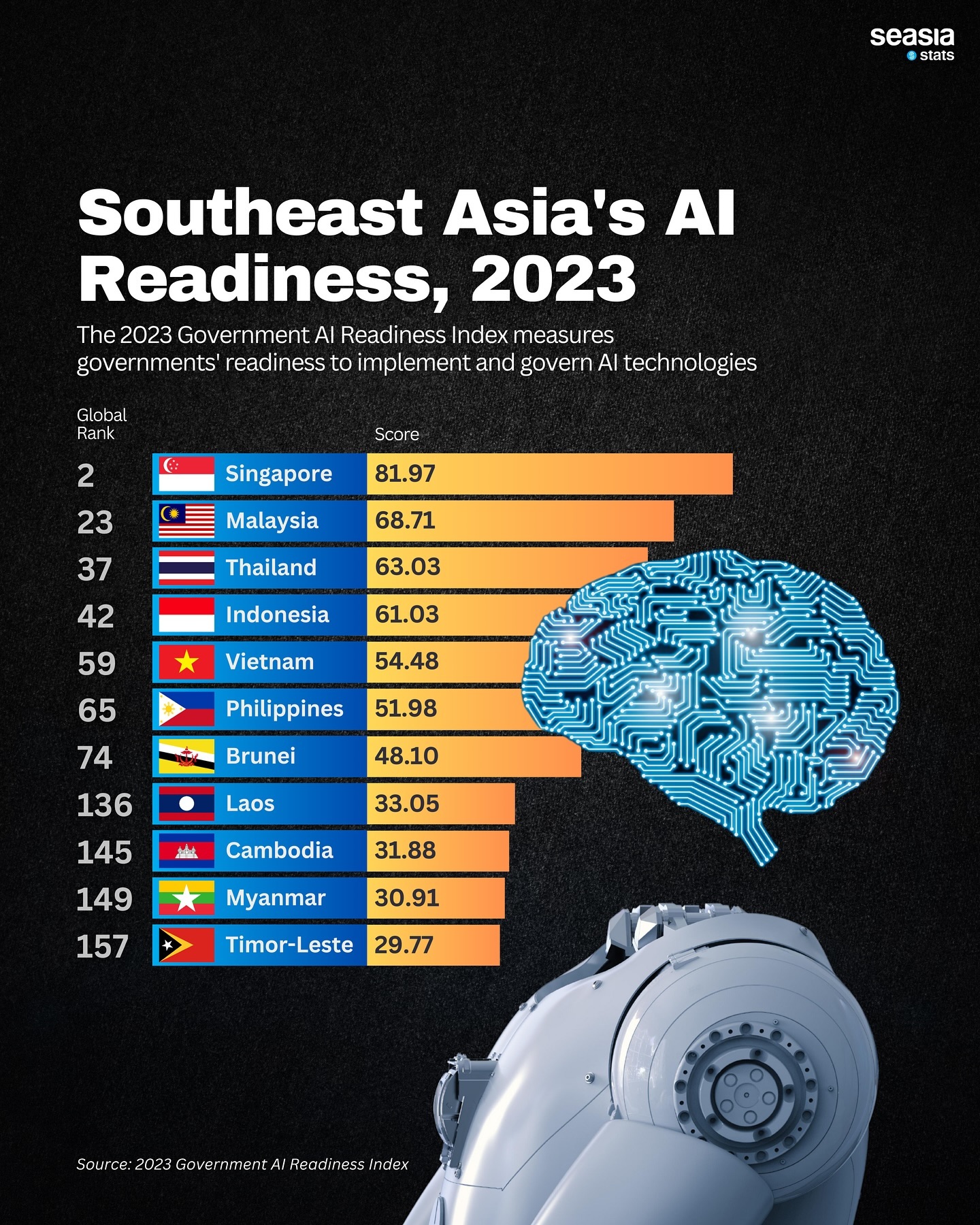Southeast Asia is at the cusp of a digital revolution, with artificial intelligence (AI) playing a pivotal role in economic transformation. With a population exceeding 680 million and a rapidly growing digital economy, the region holds immense potential to become a major global player in AI. However, challenges such as infrastructure gaps, talent shortages, and regulatory constraints need to be addressed to accelerate AI adoption and innovation.
1. Building Robust AI Infrastructure
One of the fundamental requirements for AI growth in Southeast Asia is a strong digital infrastructure. While countries like Singapore lead in AI readiness, other nations still face challenges in cloud computing accessibility, data centers, and 5G connectivity. Governments and businesses must invest in high-speed internet, cloud solutions, and scalable computing power to support AI-driven industries.
2. Investing in AI Talent and Education
A skilled workforce is crucial for AI innovation. Southeast Asia needs to ramp up investments in AI education, research, and development. Universities should integrate AI and machine learning into their curricula, and businesses should collaborate with academic institutions to foster industry-ready talent. Additionally, upskilling programs for professionals can bridge the AI skills gap and create a workforce capable of driving AI-powered growth.
3. Strengthening Regional AI Policies and Regulations
A harmonized regulatory framework is essential for AI adoption across Southeast Asia. Currently, AI regulations vary widely among countries, creating inconsistencies in data governance, ethical AI use, and cross-border AI collaboration. Establishing a regional AI governance framework can encourage responsible AI development while ensuring data privacy and security.
4. Enhancing Public-Private Collaboration
Strong partnerships between governments, corporations, and startups can accelerate AI adoption. Governments should provide incentives such as tax breaks and grants for AI research, while businesses should invest in AI-driven innovations. Regional collaborations, such as ASEAN-wide AI initiatives, can enhance knowledge sharing and cross-border AI applications.
5. Encouraging AI Startups and Innovation Hubs
Southeast Asia’s startup ecosystem is thriving, but AI-focused startups need more support. Access to funding, mentorship programs, and AI incubators can drive innovation. Governments and venture capitalists should actively support AI entrepreneurs through grants and investment initiatives, fostering the next generation of AI unicorns.
6. Leveraging AI for Key Industries
AI can revolutionize industries such as healthcare, finance, agriculture, and logistics. Southeast Asia should prioritize AI-driven solutions tailored to its unique economic landscape. For example, AI-powered precision agriculture can boost food security, while AI in fintech can enhance financial inclusion for the region’s unbanked population.
Conclusion
Southeast Asia has the potential to become a global AI powerhouse, but it requires strategic investments in infrastructure, talent, regulations, and innovation. By fostering collaboration between governments, businesses, and academia, the region can accelerate AI adoption and drive economic growth. With the right policies and initiatives, Southeast Asia can emerge as a leading hub for AI innovation on the world stage.





